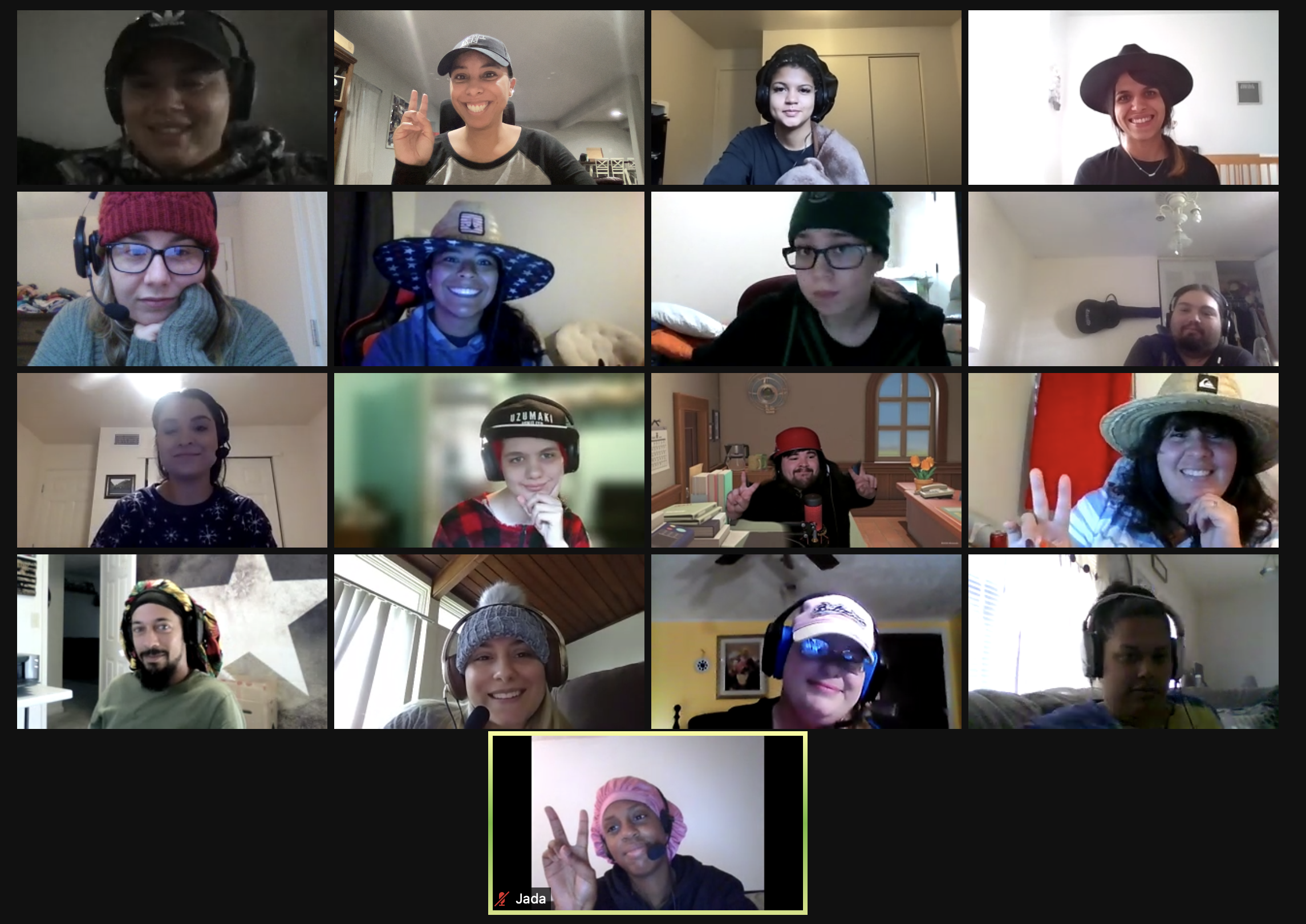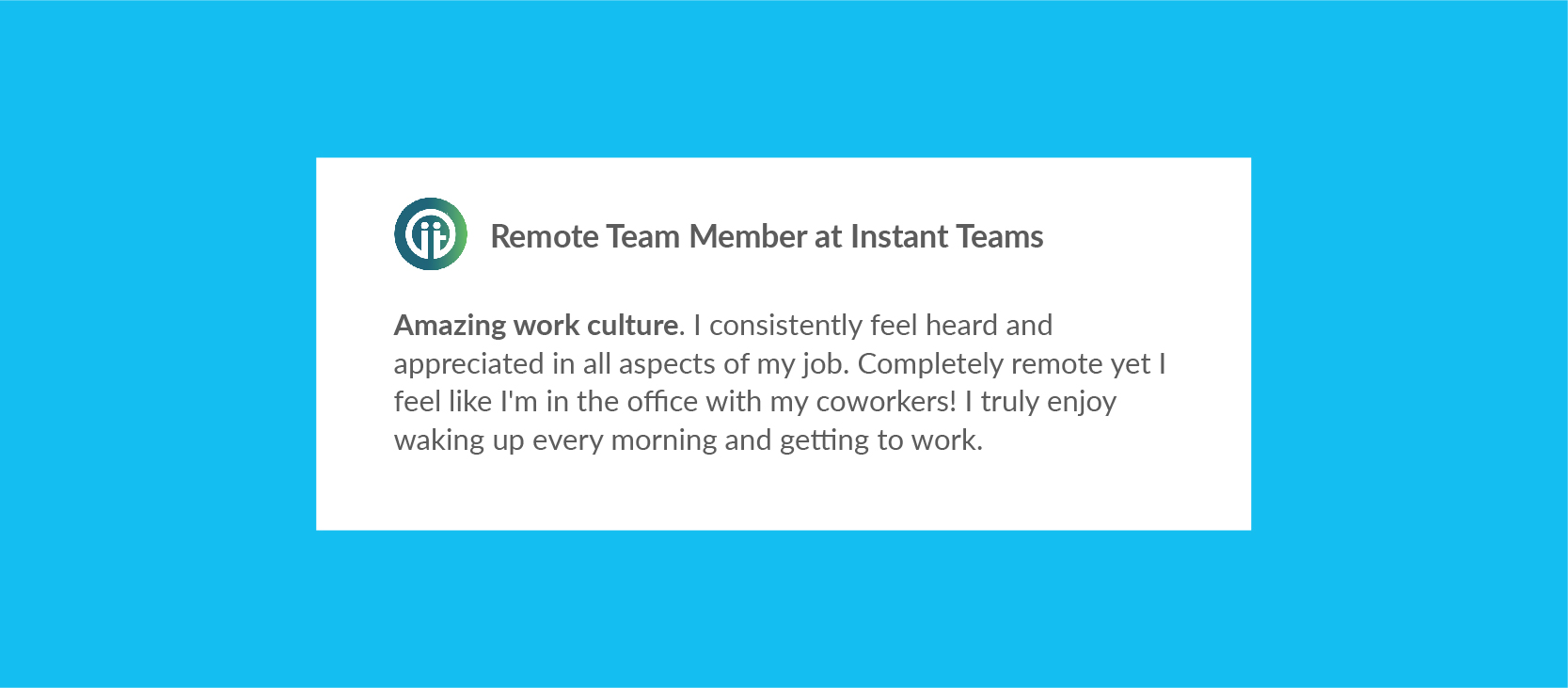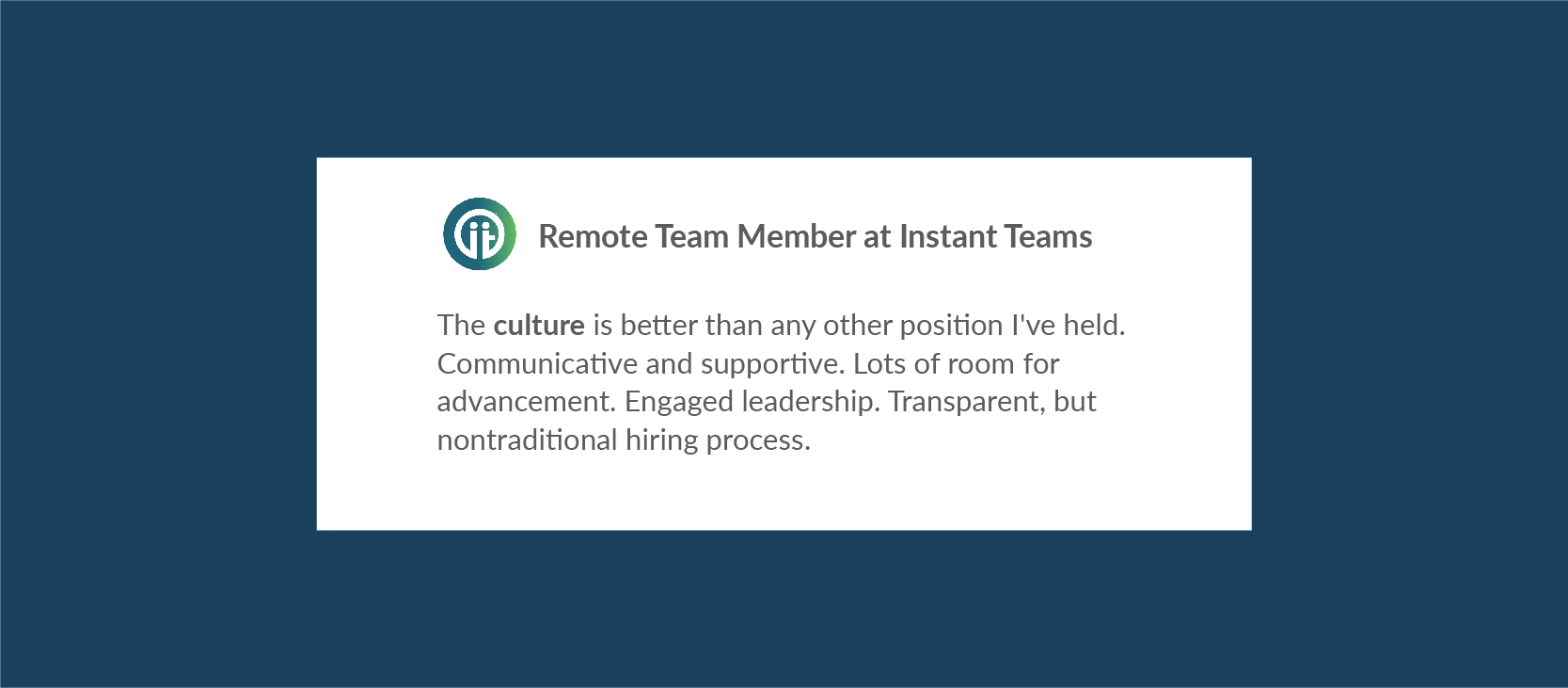It’s easy to get caught up in the excitement of searching for a real remote opportunity. As soon as you find one, apply, snag an interview spot and even land the job, the thought of how you might navigate (and possibly avoid) some of the common pitfalls of remote work can sometimes come as an afterthought — from poor communication on digital channels to overload, burnout and even loneliness. That’s why remote culture is important.

For those reasons, as a current or prospective remote team member, team culture must be at the forefront of your mind. Before we dive into what team culture looks like and why you should care, we should probably address what the heck it even means.
What is team culture?
It obviously looks different for every company and every team. But the general consensus for team culture seems to be that it dictates how people interact with each other during and outside of work (think platforms like Slack and Zoom), engage with customers (emails and phone calls) and make decisions.
Why you should care about team culture as a remote employee:
An organization’s team culture can be powerful. So powerful that it can make or break your experience on the team. We’ll get into what exactly makes up a solid remote team culture in a minute, but it’s often evident when team members are in sync, supporting one another and excited to collaborate and grow together, and there’s a concrete level of trust and loyalty present.
When that’s the case, you can expect to benefit as a remote employee with:
1. An efficient onboarding process. When a company is clear on its mission, values, goals and day-to-day remote work life, it’s easier for you to immerse yourself into its team and feel motivated and inspired to do great work that drives positive results.
2. Decreased loneliness. Working in a remote setting can be isolating. But a company that fosters an environment of open communication and provides access to tools and platforms that cultivate connections among dispersed teams can alleviate the loneliness that comes with remote work.
3. Higher rates of productivity. When you work for an organization where you feel your values are represented and leadership promotes a healthy work-life balance, the chances of you being a happy team member are high. And guess what? Happy team members are proven to be more productive.
In turn, the question should ultimately be: Why wouldn’t you care about team culture as a remote employee?
What makes up a solid remote team culture?
When you first hear the words “team culture,” do the “fun” aspects of a traditional office environment come to mind? We’re talking field days, potlucks, holiday parties and after-work happy hours. So, how is team culture possible when these opportunities aren’t entirely fit for a remote setting?
There must be a solid foundation in place first before the “fun stuff” can be layered into the equation. Here’s what to look for if you want to get a feel for whether a company has a good remote team culture:
- The company optimizes collaboration. Does the company outwardly share that it uses a combination of tools (email, Slack, Zoom, etc.) to promote better teamwork and culture? Formal and informal communication channels give you the opportunity to communicate and check-in openly with your team without taking time on anyone’s calendar. This is how teamwork and culture thrive.
- The company prioritizes mindful communication. Does the company have a working process in place that puts an emphasis on team member check-ins, project updates, day-to-day activities and real-time pulse checks? These can take place during scheduled, recurring Zoom meetings or voice calls and impromptu emails and internal messaging.
- The company practices what it preaches. Does leadership lead by example when it comes to work-life balance on a remote team? If they walk the walk by setting boundaries with their work hours so they can find time to unplug and unwind, you should be encouraged to do the same.
- The company embraces diversity, equity and inclusion. Across all aspects – from hiring to onboarding and training. If everyone in the company generally fits the same demographic, that can be a red flag in terms of team culture.
- The company has fun. Does the company make space to put work aside and have fun with the team so personal relationships can form organically? Maybe they offer a weekly trainer-led workout session, work-from-home benefits (through platforms like Fringe) or an annual virtual retreat. These opportunities allow you and your fellow team members the chance to build unity and community beyond work to-dos and formal meetings!
Okay, so what if some of these team culture factors aren’t so easy to pick up on while combing the internet and an organization’s social media pages? We’ve got you covered if you have an interview coming up:
Ask these team culture questions during your interview:
-
What can you tell me about your team’s culture?
-
What’s the best part about working here?
-
How does the team primarily communicate?
-
What does the onboarding process look like?
-
Is there someone on the team whose role focuses on people ops?
While there are no right or wrong answers, the responses you receive can paint a picture of the day-to-day essence of the company. From there, you’ll be armed with the information needed to determine whether or not the culture is a fit for you and your values.
Join forces with a company that takes team culture seriously, like Instant Teams.
With a 100% remote team, we live and breathe remote culture — from watercooler chats in our private Slack channels and our largest B2C remote networking event, Untapped, to monthly peer-nominated Remote Culture Pro awards, costume contests and even virtual pizza parties. But our culture also goes one level deeper, ensuring that team members have everything they need to succeed in the remote work world.

We even ask specific questions right out the gate (through your story in Arti, our proprietary automated remote team innovation software) to match you with a remote team culture that fits, such as:
- Please rank the type of manager who would bring out your best work in a remote setting.
- On a scale of 1-5, what type of structure is ideal for you as a remote worker?
- What level of remote work flexibility are you seeking?
- How do you prefer to receive feedback?
- How do you prefer to communicate when working remotely?
Don’t just take our word for it. Read what a few RTMs have to say about our culture here at Instant Teams:


